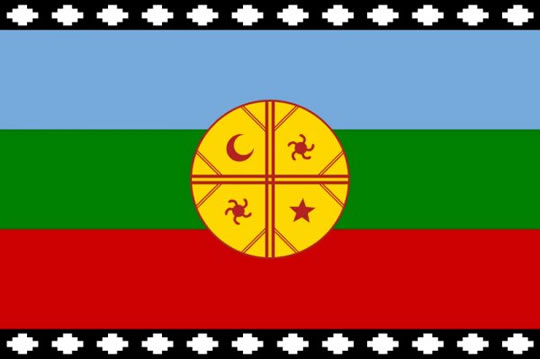




In an article by Stéphanie Borgers for Mondiaal Magazine, UNPO draws attention to the impact of hydroelectricity projects on Mapuche communities and the ongoing lack of political representation that stills marks the key political and civic institutions of Chile.
Below is the UNPO English translation of the article "'Mapuche-indianen zwaar onderdrukt in Chili en Argentinië" published by MO*
The Mapuche, an ancient Native American people from Chile and Argentina, have been the victim of human rights violations for decades. The government treats them as criminals, while large energy corporations gain an ever greater influence over their native lands. The Mapuche try to raise their voices through international means without much success.
The Mapuche are the oldest inhabitants of Argentina and Chile. During Pinochet’s military dictatorship they were the victim of serious discrimination. Nowadays, Chile is one of the fastest growing countries on the continent. Despite this development the inequality between the Chileans and the Mapuche has not been solved. They don’t share in the economic progress and are still being oppressed and excluded.
The neoliberal regimes are blind to the humanitarian consequences of their actions and economic growth is their only priority. The extensive exploitation of natural resources is causing irreparable damage to the living environment of the Mapuche. The area around the Chilean city of Panguipulli has been the home of 150 communities for the past 500 years. Despite this, the Italian energy company ENEL has been building hydro-electric plants since 1962.
According to a report by the Unrepresented Nations and Peoples Organisation (UNPO) these communities have already lost more than 300 hectares of land, which makes agricultural activities more difficult and causes an inability to start durable projects. Furthermore, they have no say in decisions over their natural resources and receive minimal reparations.
Oil and gas drills also make life hard for the Mapuche. A Mapuche demonstration was violently suppressed by the local police in the Argentine city of Neuquén on the 15th of June. They protested against the health hazards caused by the oil drills by the North American company Apache. The company uses hydraulic fracturing, a technique which is criticized in many countries because of its polluting effects. The technique is outlawed in France and Bulgaria. Many Mapuche become sick as a result, according to a press release of the Pan-American Health organization (OPS)
The Mapuche plead for more say but unfortunately their activities only makes the situation worse. Their protest is suppressed by violent actions of the police. The human rights report by the Ethical Committee against Torture (CECT) described numerous cases of unjust incarcerations and torture in Chile. Another frequent problem is the separation of children from their parents.
The crimes of the police are legalized by the anti-terrorism law which is an inheritance from Augusto Pinochets’ dictatorship. Because of this law the Mapuche can easily be charged with terrorism. The police usually walk free. “The biggest obstacle for change is the fact that the Mapuche have no political representation. In this way no-one wants to listen to them,” says Avgustina Vasilieva, project-assistant at UNPO.
The discrimination of the Mapuche can in large part be sustained due to its invisibility. Argentinean and Chilean media often don’t report on the cases or they label them as terrorism. “Many Chileans claim that the Mapuche don’t exist anymore, although it involves a million people” informs Colectivo Zudaka, a Latin American foundation in Antwerp. “The local media don’t report much on the issues and if they do, it is to put the Mapuche in a bad light.”
The international community is doing little to remedy the problems. In the past two years the EU organised two conferences about the dire circumstances of the Mapuche. Besides a call to raise more awareness for the problem, no concrete initiatives are on the table. One positive note is the top conference of the Community of Latin American and Caribbean States (CELAC) to be held in January 2013. The Chilean government will speak with the EU and several Mapuche leaders about possible future plans.
Source: UNPO